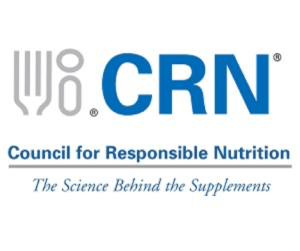In a letter to Steven Tave, Director of the Office of Dietary Supplement Programs, CRN noted that FDA has recently adopted the position that the FDCA prohibits manufacturers from marketing products containing NAC as dietary supplements, and CRN asked for this policy to be rescinded. “This policy—which represents a sudden and drastic departure from past Agency practice—is legally invalid,” the letter stated.
NAC has been marketed in dietary supplements for decades without issue, and the letter notes that FDA has considered dozens of structure-function claim notifications regarding NAC and has never objected to the presence of the ingredient in supplements.
In July 2020, however, FDA began issuing warning letters asserting that NAC can not be marketed as a dietary supplement because it was approved as a new drug in 1963 and was not marketed as a supplement prior to that date. CRN’s letter states that “the decades-old records for NAC drug approval contain unreliable information, such as handwritten dates and unverifiable information.” NAC drugs approved prior to 2016 appear to be comprised of different forms of the ingredient than that found in a supplement. Further, the letter says that this violates the presumption against statutory retroactivity.
The full letter can be foundhere.
Related: Antioxidants and Master Antioxidants—Why They Matter CRN Announces Retailer-Focused Initiative to Educate on Probiotics Study Says Vitamins are Unnecessary; CRN Responds
The second issue to which CRN is responding is a new proposed rule from HHS titled “Securing Updated and Necessary Statutory Evaluations Timely.” The proposed rule would establish a plan for HHS and the agencies under it to periodically review existing regulations and amend or rescind those that are duplicative, outdated, or overly burdensome.In CRN’s letter to Alex Azar, Secretary of HHS, the association wrote: “We have significant concerns about the expansive and accelerated approach taken in the Proposed rule.” CRN’s top concern is that the approach suggested in the proposed rule would require “intense work” from FDA that would take resources away from managing the pandemic, performing routine agency activities, and considering necessary targeted reform. CRN is also concerned that the proposed rule could lead to the sunsetting of longstanding regulations that are essential for maintaining consumer confidence and a level playing field within the industry.
The letter concludes: “Effective regulatory reform is important to our industry and to all our members. The dietary supplement industry in particular supports the need for a measured approach to regulatory reform. Nonetheless, in light of the concerns outlined above and the short comment period, HHS should issue a subsequent Proposed Rule to address the issues we raise, so that we can provide meaningful comment on the Department’s proposal.” The full letter, including CRN’s full list of issues with the proposed rule, can be foundhere.










